The first round of Tunisia’s parliamentary elections generated an astonishingly low turnout. According to the official figures, just 11.22% of Tunisians turned out to the polls. Such a low figure represents the second-lowest voter turnout ever recorded worldwide in an election since 1945. (The lowest was Jamaica in 1983 at just 2.73%, followed by Haiti in 2015 at 17.82%, and the Gambia in 2012 at 19.44%. See turnout data at International IDEA.)
The meager turnout reflects an embarrassing misstep for President Kais Saied, who is attempting to secure public buy-in for a new political system after his self-coup upended Tunisian democracy in July 2021. While Saied hopes for a higher turnout in the run-off elections, the lack of interest in the first round underscores that Saied’s vision for “politics without parties” may also become politics without participation.
Why the low turnout?
The “collective shrug” by which Tunisians approached these elections can be attributed to several factors. First, about half of Tunisians never vote, even during the previous democratic era. In Tunisia’s last free and fair election — the 2019 presidential run-offs — turnout reached just 55%.
Among those who do vote, about half oppose Saied’s rule, and have followed the opposition parties in boycotting his post-takeover elections. In the July 2022 referendum on Saied’s new constitution, this boycott brought the voter turnout down to 30.5%.
Yet, turnout dropped considerably further, to 11%, in these December 2022 elections. Of the 2.6 million Tunisians who voted yes on the new constitution, only 1 million turned out in these parliamentary elections. Why?
First and foremost, Kais Saied was not on the ballot. Unlike the referendum, these parliamentary elections were not viewed by Saied’s supporters as a referendum on his rule. Saied has no party and endorsed no candidates in these elections. Moreover, Saied did little to encourage turnout, instead spending the last week in Riyadh for the China-Arab States summit and then in Washington for the U.S.-Africa Leaders Summit.
Moreover, many of Saied’s supporters want a strong presidency and see little need for a parliament. After all, they voted overwhelmingly in favor of a constitution that enshrines a hyper-presidential system where the parliament plays little role and exerts no checks on the president. It is understandable there would be little interest in voting for a powerless parliament, particularly among voters who do not care for a parliament or even checks and balances. In the Fall 2021 Arab Barometer survey, 85% of Saied supporters agreed that, “This country needs a leader who can bend the rules if necessary to get things done.”
Third, the low interest in the elections reflects Saied’s attempts to marginalize political parties and campaign finance. Parties were not permitted to field or fund candidates for these elections, and there was no public funding for candidates either. This election accordingly struggled to find candidates at all: Ten of the 161 constituencies had only one candidate, and another seven had none at all. With little funding, these candidates did little actual campaigning, save for a handful of fliers and posters in the major cities. The paltry turnout thus underscores how political parties and financing are critical to ensuring sustained political participation.
Finally, the slate of candidates presented were not representative or inclusive of society. In his push to mark a contrast with the past, Saied abandoned Tunisia’s candidate quotas that had previously mandated women be 50% and youth 25% of party lists. Instead, only 4% of candidates were youth (under 35 years old) and only 11% were women. While we do not yet have data on who turned out to vote, it is possible that women and youth may have felt less excited than usual, not seeing faces that represented them on the ballot.
Why it matters
The election results suggest that even if Kais Saied remains popular, the system he is trying to create is not — even among his base. When the new parliament eventually takes office, it will suffer from historically low trust and legitimacy. From Saied’s point of view, this may be advantageous, all but ensuring that the new parliament will serve only as his rubber-stamp, having neither the power nor popularity to challenge his rule.
On the other hand, a system that suffers from such low trust will struggle to govern. Effective governance requires institutions, and public trust in those institutions. Without support from the opposition nor apparently Saied’s supporters, his system will struggle to implement his policies and address the major socioeconomic challenges Tunisians face.
The view from abroad
The elections have also revealed shifting international positions vis-à-vis Saied’s rule. France’s Emmanuel Macron had been an early supporter of Saied’s takeover but has seemingly grown more critical. The French ministry of foreign affairs statement simply took note of the election, highlighting instead the low turnout. Algeria and Egypt, two of Saied’s strongest supporters who both praised the July referendum, have thus far been silent this time around.
Meanwhile, the United States appears to have shifted in the opposite direction. Although the Biden administration had been fairly critical of Saied since his coup, it inexplicably labelled these election results as an “essential initial step toward restoring the country’s democratic trajectory.” With this statement coming just days after a friendly embrace between Saied and Biden at the U.S.-Africa Leaders Summit, democracy supporters in Tunisia can’t help but wonder where the U.S. stands. With just 11% turnout, the U.S. would be wise not to view these elections as creating a stable or sustainable system. As domestic calls for Saied’s resignation heat up, the U.S. should instead continue its pressure on Saied to restore democracy by conditioning foreign assistance and leveraging the IMF loan.
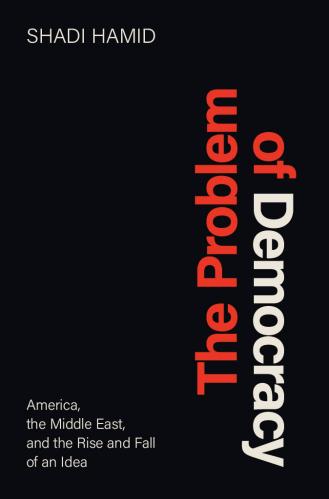
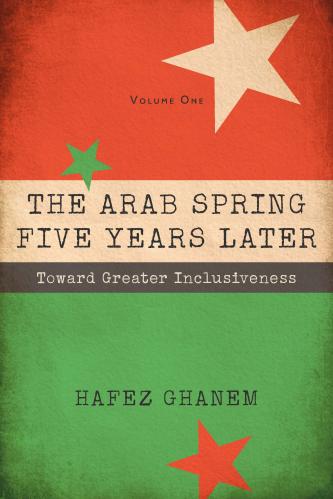
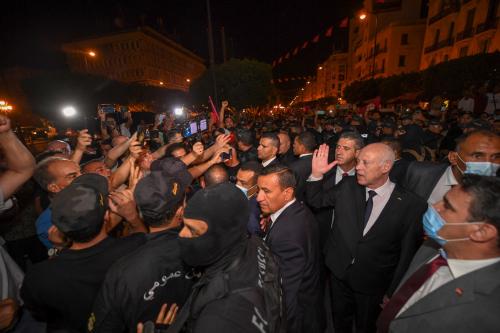
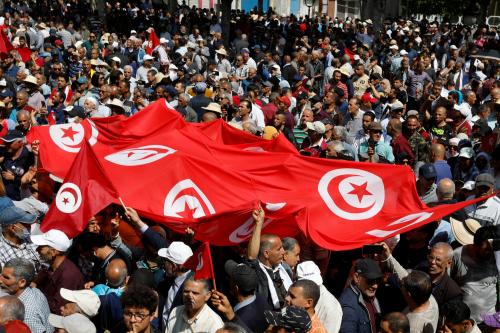
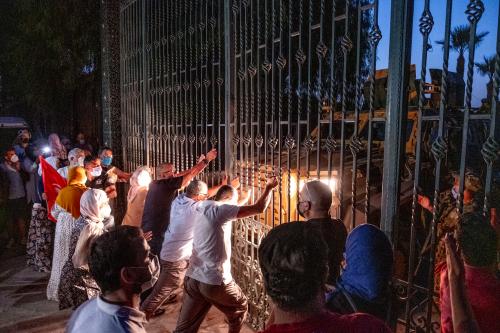



Commentary
Tunisia’s parliamentary election draws a collective shrug
December 21, 2022